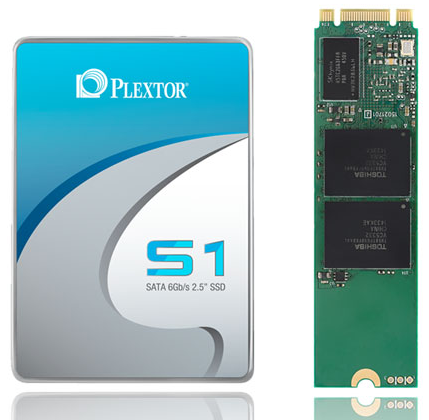Plextor, the world's leading brand in high-performance digital storage devices, is announcing the S1 series; its last model in the MLC SSD product line. SSD nowadays is shifting from MLC to TLC flash memory; Plextor is no exception will fully adopt TLC lately. However there are some users who still prefer MLC SSDs, fortunately, Plextor now provide with the last chance to buy MLC SSDs - the S1 series.

Plextor’s S1 series will be sold only in Southeast Asia because of the limited quantities, and is designed with the best price-performance ratio in mind to meet the need of Southeast Asian Market. Sorry to other regions of the world, anyone who wants to get the MLC SSDs last-buy chance has to come to Southeast Asia.
The strength of S1's core components comes from the Toshiba’s high-quality Toggle Mode MLC NAND flash memory, as well as the SMI’s well-reputed SM2246 controller. By extending Plextor's exclusive firmware technology, and employing industry-preferred components, the S1 series provides users with performance up to 510/440 MB/s in sequential read/write and 74K/79K IOPS in random read/write, respectively. The excellent performance data exhibited by the S1 series bring application advantages to users which exceed those of entry-level solutions.
The S1 series is suitable as an entry-level SSD for all types of users to drastically improve the load time of all applications, increase productivity, improve power efficiency, and enhance total system responsiveness. The S1 may not be the fastest drive on the market, but was carefully designed to provide the best value possible and still perform at amazing SSD speeds that won’t break the bank.
Plextor's S1 series SSDs are available in two interface specifications: 2.5-inch (S1C) and M.2 2280 (S1G); with two different storage capacities: 128GB and 256GB. Plextor's S1 series has successfully passed various stringent factory tests and is covered by a three-year warranty; the product will no doubt meet the needs of SSD storage and upgrade requirements by desktop and laptop users.

